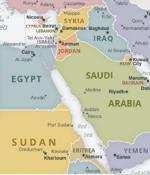Security News

Researchers have identified some similarities between the Sunburst malware used in the SolarWinds supply chain attack and Kazuar, a backdoor that appears to have been used by the Russia-linked cyber-espionage group known as Turla. On Monday, Kaspersky reported finding an interesting link between the Sunburst malware delivered by the SolarWinds attackers and Kazuar, a.NET backdoor that has been around since at least 2015 and which was first detailed in 2017 by Palo Alto Networks.

Kaspersky researchers found that the Sunburst backdoor, the malware deployed during the SolarWinds supply-chain attack, shows shared features with Kazuar, a.NET backdoor tentatively linked to the Russian Turla hacking group. Kazuar is one of the tools used during past Turla operations and, according to Kaspersky, it shares several of its features with the malware created by the group behind the SolarWinds hack.

This delightful essay matches APT hacker groups up with astrological signs. This is me: Capricorn is renowned for its discipline, skilled navigation, and steadfastness. Just like Capricorn, Helix...

Security researchers investigating a set of ransomware incidents at multiple companies discovered malware indicating that the attacks may be the work of a hacker group believed to operate on behalf of China. Although the attacks lack the sophistication normally seen with advanced threat actors, there is strong evidence linking them to APT27, a group normally involved in cyber espionage campaigns, also known as TG-3390, Emissary Panda, BRONZE UNION, Iron Tiger, and LuckyMouse.

The US Cybersecurity and Infrastructure Security Agency said that the APT group behind the recent compromise campaign targeting US government agencies used more than one initial access vector. "CISA has evidence of additional initial access vectors, other than the SolarWinds Orion platform; however, these are still being investigated. CISA will update this Alert as new information becomes available," the agency said.

The MoleRats advanced persistent threat has developed two new backdoors, both of which allow the attackers to execute arbitrary code and exfiltrate sensitive data, researchers said. The DropBook backdoor uses fake Facebook accounts or Simplenote for C2, and both SharpStage and DropBook abuse a Dropbox client to exfiltrate stolen data and for storing their espionage tools, according to the analysis, issued Wednesday.

"We identified a server used to deliver a malicious.lnk file and host multiple credential-phishing pages," wrote researchers, in a Wednesday posting. On the email front, researchers found that many malicious initial files are being used in the campaign, including a.lnk file that in turn downloads an.

You're invited to join today's Threat Landscape webinar at 1PM ET. Join the live webinar to hear principal security researchers from Kaspersky's Global Research and Analysis Team present their annual analysis of the most significant changes of the APT threat landscape and predictions for 2021. Key findings from Kaspersky's annual review of advanced persistent threats.

Leading cybersecurity company FireEye disclosed today that it was hacked by a threat actor showing all the signs of a state-sponsored hacking group. The attackers were able to steal Red Team assessment tools FireEye uses to test customers' security and designed to mimic tools used by many cyber threat actors.

The DeathStalker advanced persistent threat group has a hot new weapon: A highly stealthy backdoor that researchers have dubbed PowerPepper, used to spy on targeted systems. PowerPepper was cultivated to execute remote shell commands sent by DeathStalker operators, which are aimed at stealing sensitive business information.